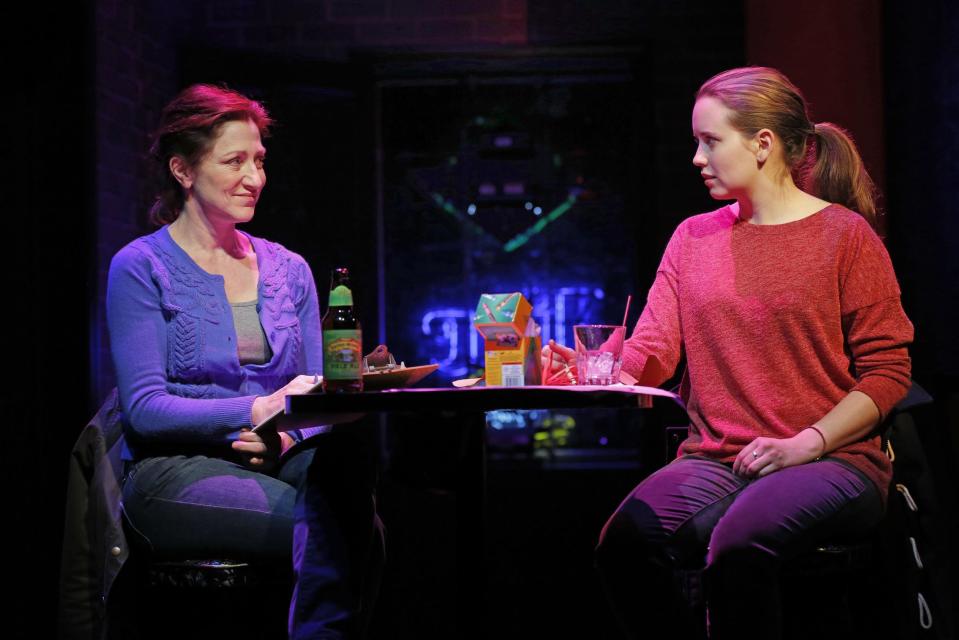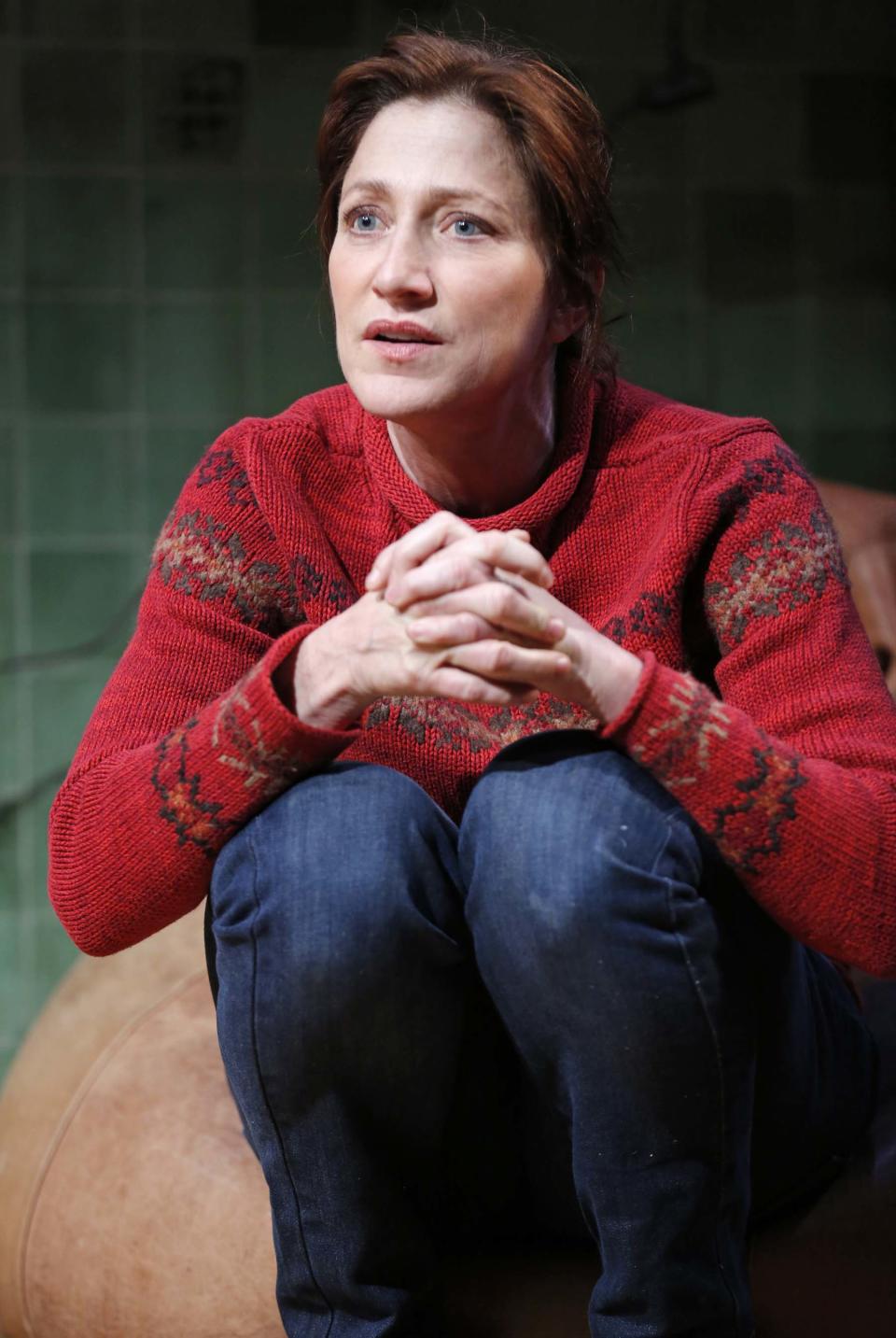Review: Edie Falco shines in touching 'The Madrid'
NEW YORK (AP) — Humans, we're told, have an ingrained flight-or-fight impulse. We either flee stress or stay and put up our mitts. The hero of Liz Flahive's new play is definitely in the first group.
Martha, a kindergarten teacher played with usual soulfulness by Edie Falco, is a runner. In fact, the first scene opens with her teaching a class of children and then slipping away, telling them, "I'll be right back."
She's lying: She won't be back. She's been planning this escape for a long time. For the rest of the play, it's up to her family — husband, college-age daughter and mother — to come to grips with the hole made by Martha's abdication.
They do it exceedingly quietly, befitting a play with a hero who bolts rather than fights. There are few fireworks or tears in Flahive's touching, funny and beautiful play, whose world premiere is produced by the Manhattan Theatre Club and opened Tuesday at New York City Center.
This is the second play for Flahive, a writer for Falco's Showtime show "Nurse Jackie," and she proves a talent to watch, her characters deeply grounded and her dialogue profound without being flashy. And with the addition of an adolescent giant, she even seems to flirt with magical realism.
She's aided by Leigh Silverman, who lets the essence of the vignettes that make up the play unspool softly, knowingly. And David Zinn's sets work simply and beautifully, including a comfortable home's parlor, a bar, a cluttered lawn and Martha's apartment.
Martha, we learn, has fled without warning to a run-down apartment complex downtown named The Madrid and is living out a sort of post-mid-life-crisis fantasy. She spends her days in a bar and has decorated her new apartment as if she were in college again, complete with beanbag chair, a Jane Fonda poster and fold-up bed. She has left her cellphone behind.
She does this now rather than ferry her doddering mother (a feisty Frances Sternhagen) to the grocery story or chitchat with her husband (a sad sack John Ellison Conlee) or hover over her daughter (a solid Phoebe Strole). Martha has wanted to flee for years but had to wait until her daughter was grown.
"I never understood how you didn't mind the endlessness," she tells her husband. "Every time she needed me less, I thought: one more tether loose. Almost there. She can walk. She can swim. She's grown. Fully educated. And you're both still here. Waiting for me."
Falco is simply wonderful as a woman rediscovering who she is, trying to let go and yet also reconnect with her daughter. A fixed, forced smile is often plastered on her lips as she tries to explain herself and she fights to stay free from the pull of obligations. Falco's sheer skill in plumbing disappointment, steely resolve and excitement at the same time sometimes papers over a character that needs more definition.
Adding complexity to this family in quiet crisis is a neighboring couple — a first-rate Heidi Schreck and an angst-filled Christopher Evan Welch (soon to be replaced by Darren Goldstein).
They are smothering oversharers and constant worriers. "I hear myself talk sometimes and I want to leave," confesses the husband. One of their sons, played by Seth Clayton, makes a lovely late appearance as a very tall teen suffering from a bizarre condition.
Everyone in this play is wounded by Martha's dropping out but expresses it internally. The grandmother begins driving poorly so that an accident will bring her daughter to her hospital bedside. Her husband pathetically rushes home whenever he sees a taxi in front of the house, thinking Martha might have returned. Martha's daughter, who is the only family member to keep a slender tether to AWOL mom, doesn't understand the flight response but fills in her mother's shoes perfectly, taking care of dad and even replacing mom as kindergarten teacher.
The play ends too easily, with a happy bow that seems too hopeful and kind for some of the play's themes. A woman who bolts a seemingly happy suburban life is fascinating terrain to explore, but Martha's exploration gets cut short just when things were getting serious.
___
Online:
http://www.ManhattanTheatreClub.com


